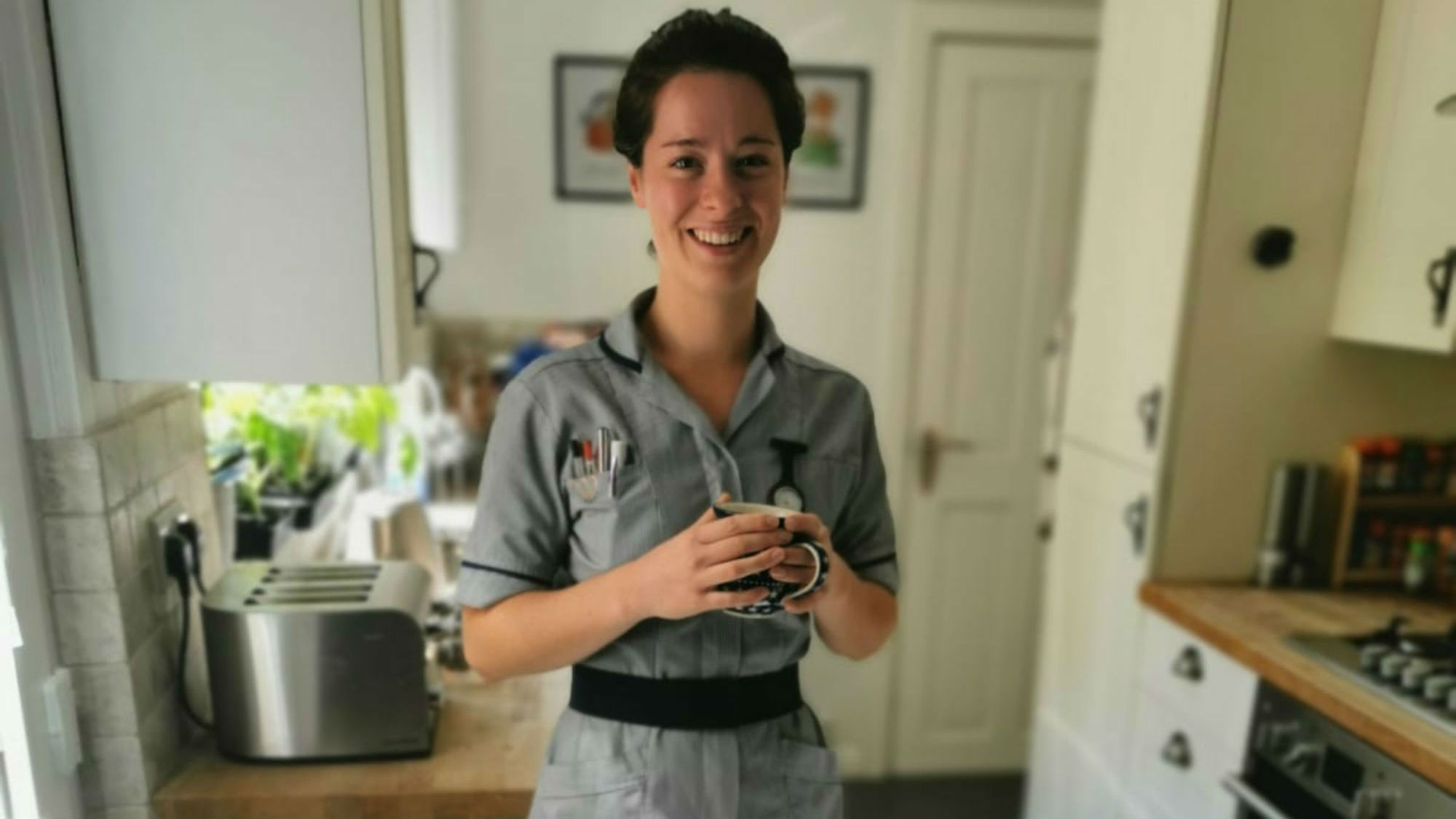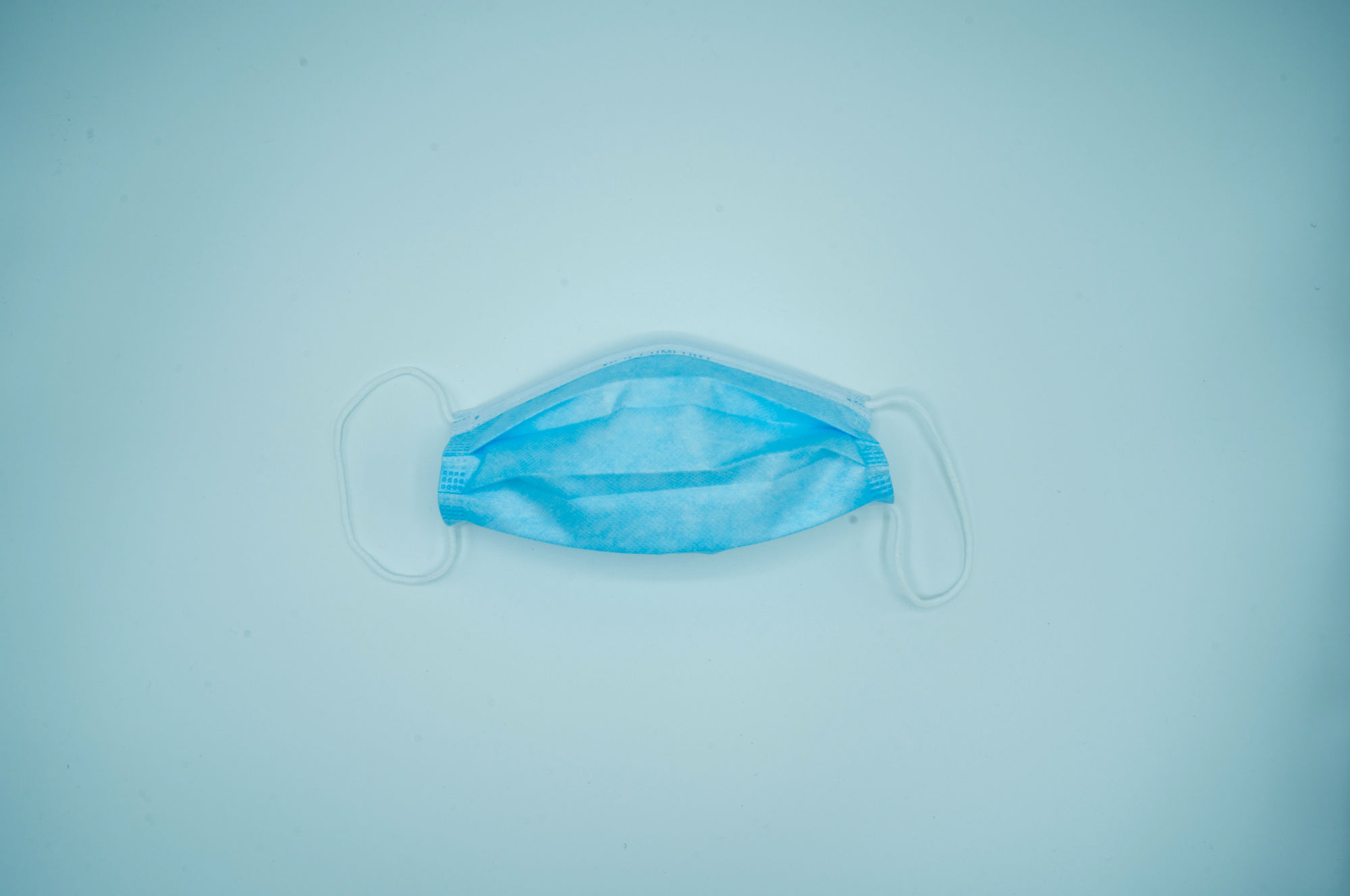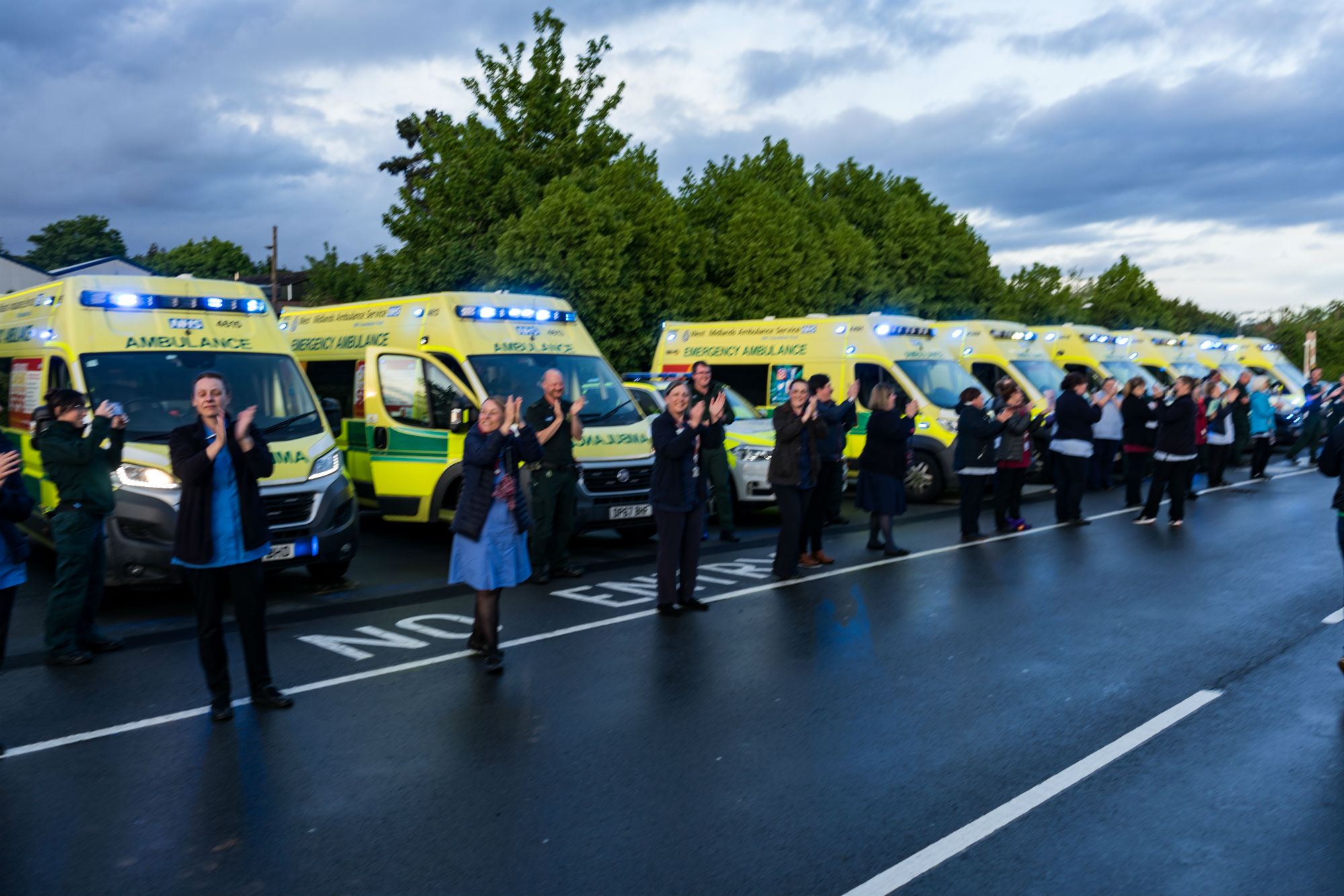'A masked stranger with good intentions': an NHS midwife on the frontline
Stephanie, a 25-year-old midwife based in a hospital in the Midlands, details her worries about how her vital role providing care for women and their babies being born during the Covid-19 pandemic has changed

Stephanie, a 25-year-old midwife based in a hospital in the Midlands, details her worries about how her vital role providing care for women and their babies being born during the Covid-19 pandemic has changed
As well as exciting, having a baby can be a really scary time in a woman’s life – and that’s without a deadly virus being involved. The pandemic has undoubtedly changed my working environment as a midwife, and not for the better, but I am determined to keep a ‘business as usual’ approach to ensure women feel as supported and relaxed as possible.
Masked stranger
These days, I arrive at hospital in normal clothes and then change into my uniform, to reduce the chances of any virus particles leaving the building. I put on a plastic apron and plastic gloves, and reluctantly, I put on a standard surgical face mask. I realise its purpose, but it’s horrific. It makes me sweat and gives me a sore throat and a headache. By the end of the 12 and a half hours shift I feel quite disgusting.

A big part of my job is building a trusting relationship with a pregnant woman very quickly. As I am now a masked stranger, it’s more difficult. It takes away a lot of the human element of my job. With my smile gone, I put extra effort into reassuring with my eyes, tone of voice and choice of words.
During the past few days we’ve started testing every in-patient in our hospital for Covid-19. This means the mums and the new babies, too. It’s invasive having to take a throat and nose sample from a newborn baby, and not an enjoyable experience.
Unnecessary risk
Symptomatic women are coming in to hospital and I’ll be honest, my health is a concern. Being a midwife isn’t a job that lends itself to social distancing – I can’t stand two metres back at the moment of delivery! And the Personal Protective Equipment (PPE) guidance keeps changing. We are currently being told we don’t need to wear FFP3 masks (a mask with higher level protection than a standard surgical mask) when coming in contact with Covid-19 patients (we are given an FFP3 mask if a patient requires general anesthetic surgery).
I can’t help but wonder if we are being put at unnecessary risk. Has the guidance simply been printed because there’s a lack of protective equipment, rather than because we are learning more about the virus and wearing full gear isn’t necessary?
Celebrity news, beauty, fashion advice, and fascinating features, delivered straight to your inbox!
Plus, there’s a shortage of scrubs for frontline NHS staff. I sometimes find myself running to theatre in an emergency wearing XXL and practically tripping over myself.
Visiting rights reduced
Changes to visiting rights have also affected the service. We now only allow one birth partner in the delivery room, and after the birth when the woman goes to the maternity ward, the birthing partner has to leave the hospital relatively quickly, rather than stay overnight.
Because of this, new mums may not stay in hospital as long as they normally would. Understandably, they want to get back to their partner quicker, and they also fear contracting the virus.
One patient who had no symptoms started coughing and a lady near her said she wanted to be moved. It’s more than likely she was coughing after using gas and air for the last few hours, but abiding by the other lady’s request was a less time-consuming option than trying to explain this.
Audio over face-to-face
When a mum is discharged, she now receives an audio call, rather than an in-house visit. This does worry me because a call is often not personal enough to want a new mum to divulge concerns about her health, mentally or physically.
Outside of hospital, some home birth services are being cancelled because it’s too high risk for a midwife. It’s a shame for expecting mums to have their plans changed, but we need to keep healthcare workers, well, healthy. Many of my colleagues are isolating for various reasons, and this means picking up extra shifts to make sure the service keeps running to the best of its ability.
That said, it’s not always possible. Last week we were only on 60 to 70 per cent staffing on the delivery suite. When I eventually got home I felt drained and exhausted from running around so much.

Midwife mentality
I miss seeing my parents regularly but I’m so grateful to have a small garden to relax in. And as much as it would be nice to have a couple of weeks off, I’m incredibly grateful to have my job. Being a midwife gives structure and normality to my week and I know that also has a positive impact on my mental health.
Another change brought on by coronavirus is living with my boyfriend. He moved from his family home into my little 1-bed house to reduce the risk of spreading the virus, as he works in ITU as a physiotherapist and his day-to-day now sees him giving chest and respiratory physio to those who are ventilated.
He is seeing people who are seriously unwell – and these are not just older people with previous health issues. He often comes home feeling emotional and mentally distressed, but it’s been lovely to be able to support each other after a long day. That said, I’m looking forward to having my own space again once this is all over…
These are unprecedented times, but the women coming into hospital are being really understanding, which makes my job that little bit easier. And I’m glad I can help deliver them a newborn to brighten their lockdown days.
Olivia – who rebranded as Liv a few years ago – is a freelance digital writer at Marie Claire UK. She recently swapped guaranteed sunshine and a tax-free salary in Dubai for London’s constant cloud and overpriced public transport. During her time in the Middle East, Olivia worked for international titles including Cosmopolitan, HELLO! and Grazia. She transitioned from celebrity weekly magazine new! in London, where she worked as the publication’s Fitness & Food editor. Unsurprisingly, she likes fitness and food, and also enjoys hoarding beauty products and recycling.